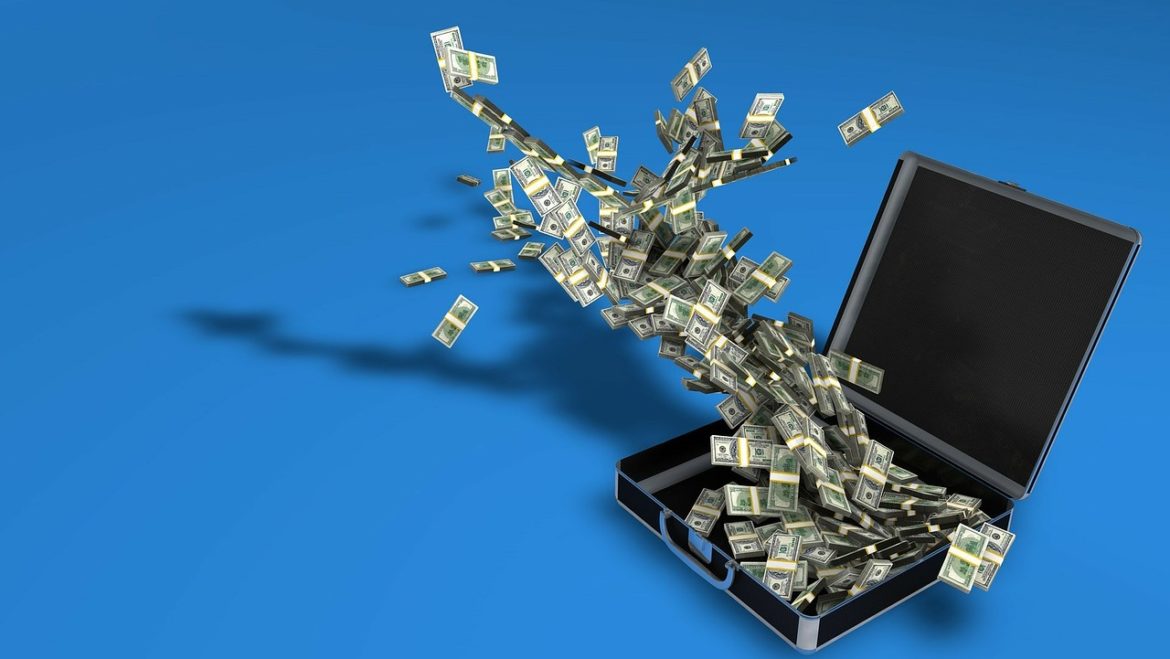Gold has all the potential to go unprecedentedly high. But silver will be gold on
Site:
Precious metals news
It was Federal Reserve policy, not crypto, which was the primary culprit in the bankruptcies of Silicon Valley Bank and Signature Bank, according to Ark Investment chief Cathie Wood.
Goldman ringing some alarm bells.
 Treasury Secretary Yellen to Tell Congress ‘Our Banking System Remains Sound'
Treasury Secretary Yellen to Tell Congress ‘Our Banking System Remains Sound'Mar 16, 2023 - 05:23:34 PDT
Finance Committee on Thursday the U.S. banking system remains "sound" as the impacts of three bank failures in less than a week continue to be felt in financial markets and beyond.
 How Credit Suisse Just Unleashed a Nightmare Decision for the Fed and the ECB
How Credit Suisse Just Unleashed a Nightmare Decision for the Fed and the ECBMar 16, 2023 - 05:22:54 PDT
Credit Suisse added more gas on the banking fire, exacerbating an already tough decision for central banks.
 Futures Rally Fizzles As SNB Bailout Underwhelms, Banking Fears Linger, ECB Looms
Futures Rally Fizzles As SNB Bailout Underwhelms, Banking Fears Linger, ECB LoomsMar 16, 2023 - 05:21:58 PDT
Well, we warned last night that the euphoria from the "rescue" of Credit Suisse in the form of a CHF50 billion (priming DIP) loan from the ECB would not last long, to wit:
Investors were buoyed by Credit Suisse’s announcement that it would borrow up to 50 billion Swiss Francs ($53.7 billion) offered by the Swiss National Bank to “to pre-emptively strengthen its liquidity.”
After ending 2022 on an upward trend that continued into January, Chinese gold demand surged again in February as the economy continues to rebound from government-imposed COVID policies.Gold withdrawals from the Shanghai Gold Exchange (SGE) totaled 169 tons in February. This is a reflection of strong wholesale demand and signals an ongoing rebound in the world's biggest gold market.
As the old saying goes, if it looks like a duck, walks like a duck, and quacks like a duck, it's probably a duck.Well, if it looks like a bailout, walks like a bailout, and talks like a bailout, it's probably a bailout.
 Wall-Street For Mainstreet SRSrocco Report Interview: More Shorter Term Boom & Bust Cycles
Wall-Street For Mainstreet SRSrocco Report Interview: More Shorter Term Boom & Bust CyclesMarch 16, 2023
As the world hits the ENERGY CLIFF, the Boom & Bust Cycles will become even more extreme and shorter in duration. I sat down with Jason at Wall Street For Mainstreet and discussed what is taking place in energy, mining, the economy, and precious metals...
The banking crisis is spreading - get Mike Maloney's latest thoughts in today's live update.
Gold price resume the upside on Wednesday, boosted by risk aversion across financial markets, triggered by worries about the health of Credit Suisse.
Nouriel Roubini, chairman and CEO at Roubini Macro Associates, discusses the turmoil at Credit Suisse and its impact on financial markets, the path of inflation, and investment strategy on “Bloomberg Surveillance.” (Source: Bloomberg)
 Looming Bank Failures Point to More Price Inflation as Real Wages Fall Again
Looming Bank Failures Point to More Price Inflation as Real Wages Fall AgainMar 15, 2023 - 12:19:43 PDT
The federal government’s Bureau of Labor Statistics (BLS) released new price inflation data today, and according to the report, price inflation during the month decelerated slightly, coming in at the lowest year-over-year increase in eighteen months.
With the apparent failure of Silicon Valley Bank (SVB) potentially causing a crisis in the American and even the global financial system, we will be treated to all manner of explanations, very few of which will accurately state the cause of these troubles: fractional reserve banking.
I expect Goldilocks to be temporary, maybe very temporary because typically when the Fed halts a rate hike regime that is when troubles brewing beneath the surface..
.. to be the Poster Child for its Digital Currency Launch.
According to the Mauna Loa Observatory, the rate at which carbon dioxide is accumulating in the Earth's atmosphere continued slowing in February 2023. As a global economic indicator, that change suggests the world's economy slowed along with it.
As the Pentagon unveils its $842 billion budget request for fiscal 2024, the prospect of a $1 trillion defense budget looms.
 Treasury Market Glitches Out As Liquidity Disappears; Fed Funds, SOFR Futures Halted
Treasury Market Glitches Out As Liquidity Disappears; Fed Funds, SOFR Futures HaltedMar 15, 2023 - 12:11:27 PDT
Last night, we shared with readers the latest views by Goldman flows guru who raised many alarms, but most notably perhaps his observations that Treasury market liquidity has completely vaporized, to wit: "10 year bond futures DV01 liquidity is 19K. This is the lowest since March 23rd, 2020 (Covid times). At the start of March 2023, you could trade 114k DV01 on the screens, and today is 19K, a decline in 83% month-to-date."
Mar 15, 2023 - 12:10:25 PDT
We laugh, but it’s a start. SVB Financial collapsed with investment-grade ratings.








